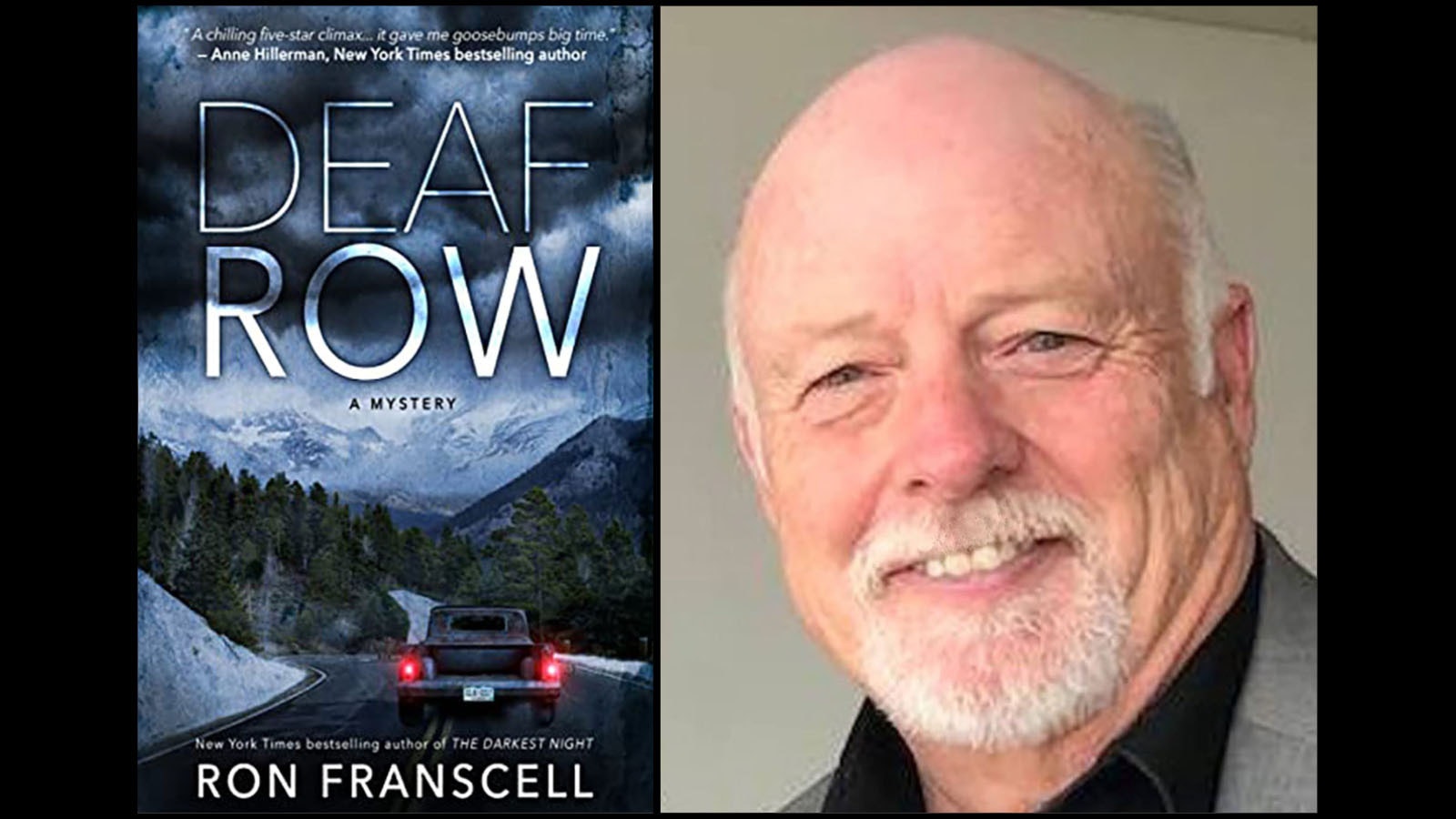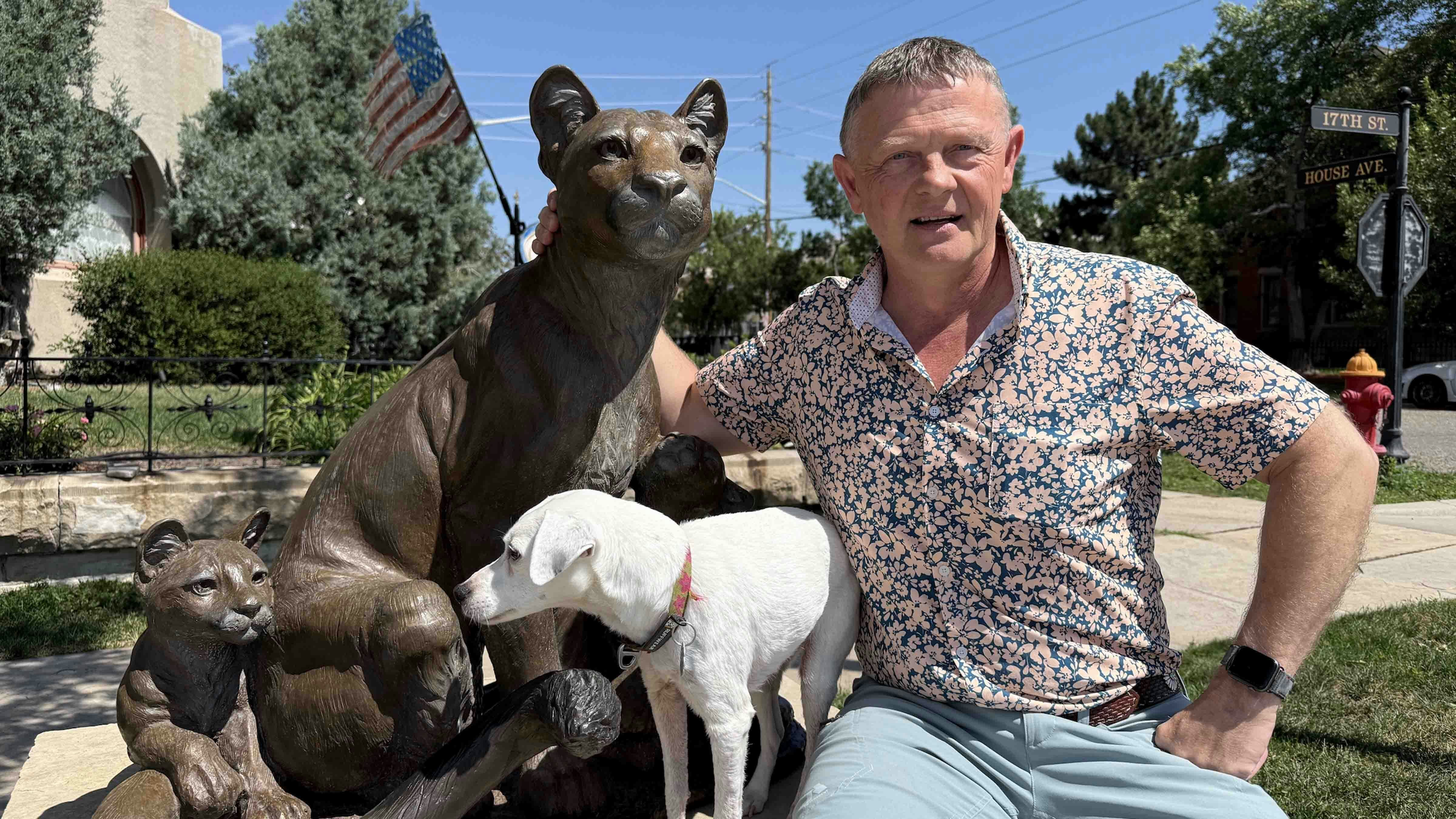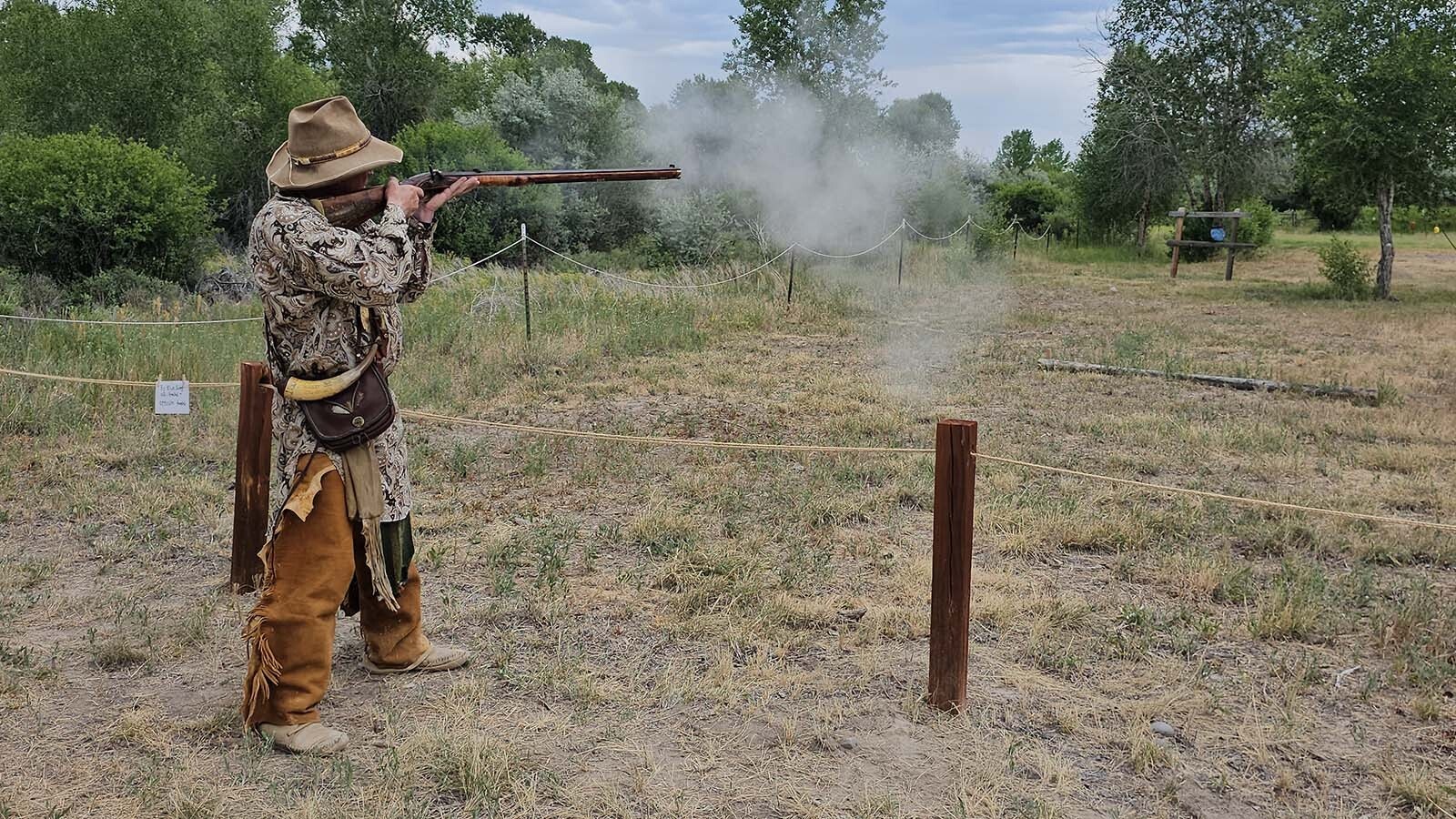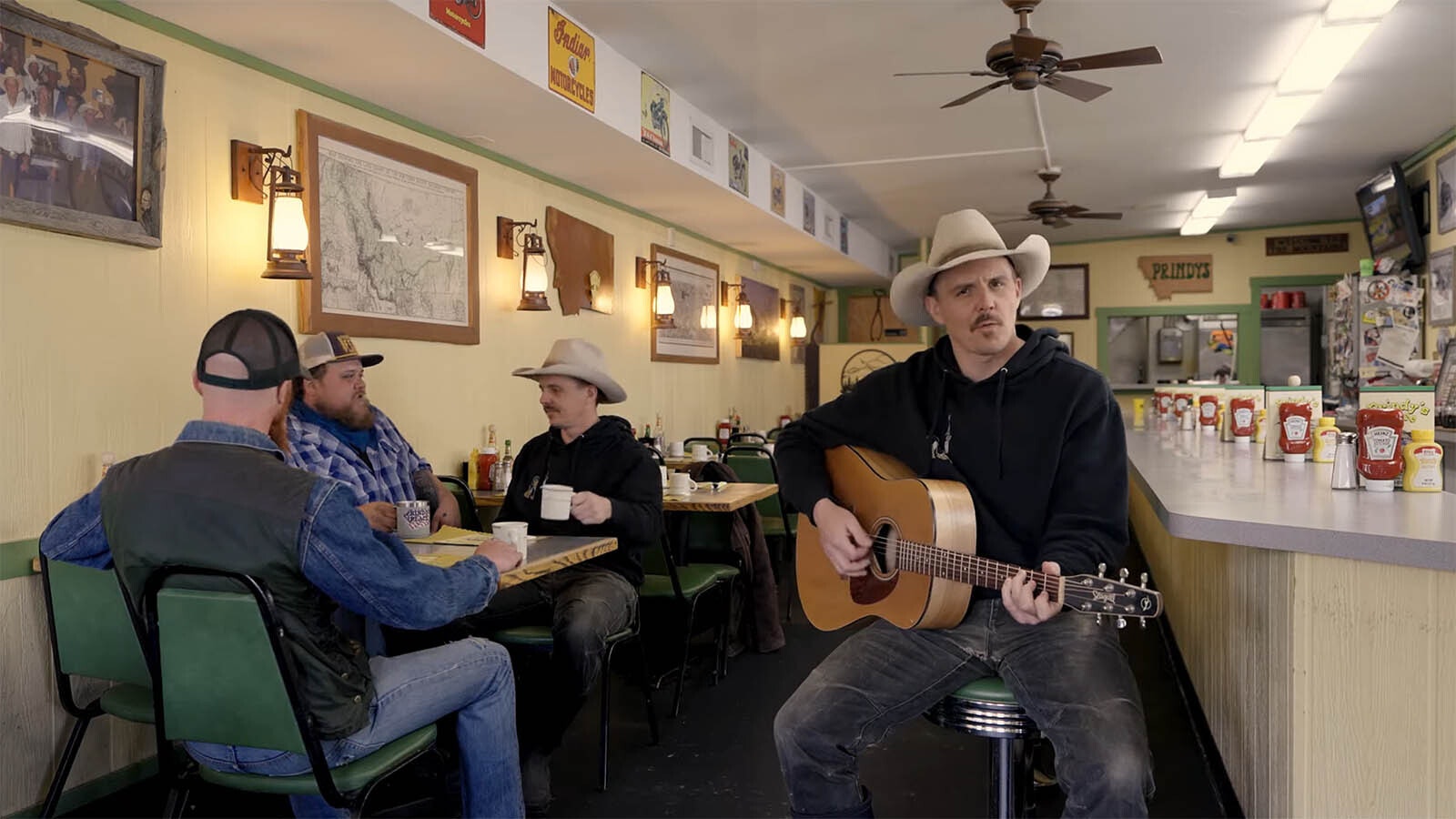After 20 years of writing nonfiction, it was time to make something up.
Wyoming-raised author Ron Franscell’s newest novel “Deaf Row” hits bookstores this week and is his 19th published book. But it’s the prolific true-crime author’s first work of fiction in 20 years.
“Deaf Row” brings a cold murder case to an old-man coffee group in rural Colorado.
The book’s hero, retired Denver homicide detective Woodrow “Mountain” Bell, is as jaded as he is large. Bell thought he could live out his sunset days chattering with other men of a certain age in a warm café in Midnight, Colorado.
But he thought wrong.
Bell’s friend Father Bert, a rogue priest whose heart is as gold as his whiskey, convinces Bell to visit a friend at an old-folks home in town. That’s when the reluctant Bell accidentally meets a dementia-riddled patient searching, desperately, for answers about his daughter’s horrific 1969 murder.
Bell’s detective skills and relentless curiosity drive the story forward. But it’s the talents, memories and awkward brotherly love of his geriatric coffee buddies that bring it home.
A Few Good Friends
Franscell told Cowboy State Daily the idea for “Deaf Row” has been with him since 2011, when an elderly friend divulged that his “little coffee group” called itself Deaf Row.
“In that moment, just that blink of an eye, I heard a story,” said Franscell.
Though the story is fiction, it’s rooted in real life.
“Over the years I kept refining it,” he said. “I’d collect all these little artifacts of human behavior.”
Franscell said observing others is a key part of a storyteller’s job. A writer who observes people closely enough, he said, can one day deliver to those same people a tale meant to make them laugh. Or cry.
“Deaf Row” strives to do both.
“Old guys of ‘Deaf Row’s’ period don’t walk up to each other and throw their arms around each other’s shoulders and say, ‘Hey, I love ya man,’” said Franscell. “They might truly love each other, but that’s not how it comes out.”
Love comes out in jokes and grunts.
But that’s where much of the book’s humor lies as the old men face not just the hastening of death to their own doors, but its grim specter in a cold murder case. Their clumsy attempts to use cellphones, profile a criminal, analyze evidence and reassure one another give the otherwise gritty thriller a charming edge.
“You need to get a voicemail, Woodrow,” a concerned friend tells Bell during the fast-paced murder investigation.
“I promise to sign up at the Post Office if I ever find the damn thing,” answers Bell, while searching for his new cellphone.
Such geriatric faux pas strewn throughout Bell’s quest for justice assert that not even pure evil can crush a man – as long as he has a few good friends.
Career In Crime
Franscell didn’t mean to focus on nonfiction crime stories for two decades, it just happened that way after his standout success with “The Darkest Night,” the retelling of the brutal rape and murder that “splashed” his teenhood.
He was 16 when his childhood friends from Casper, half-sisters Becky Thomson and Amy Burridge, were attacked by two men and taken to the Fremont Canyon Bridge. The men threw Burridge off the bridge and violently raped Thomson who fell, or jumped, to her own death from the same bridge 19 years later.
The book launched Franscell’s successful career writing true-crime books. The genre incorporates a fiction writer’s use of foreshadowing and sensory description while adhering to real historical crimes.
“I just wanted to tell the story,” said Franscell of “The Darkest Night.” He said that crime was the plot twist of his youth in the same way the 9/11 twin tower attacks were for a later generation.
“It all came together and became such a huge success,” he said, adding that he decided to bring the story to light while he returned home from covering the first month of the war on terror in the Middle East following 9/11.
“Nobody on my team, so to speak – agents, editors – wanted me to do anything else but true crime, because we’d established a foothold with true crime readers,” he said.
Franscell allowed himself just one break from the genre in those 20 years when he wrote the “Sourtoe Cocktail Club,” a nonfiction about his journey to the Yukon with his son.
Stuck In Quarantine
Then came COVID-19.
Franscell could not hit the road to interview hundreds of sources. He couldn’t access courthouses, libraries or airplanes.
The wanderer was stuck at home, which isn’t ideal for a journalist-turned-nonfiction writer who believes ardently in “being there.”
Fiction had to happen.
“It was a blessing,” he said. “COVID gave me the chance to do what I’d imagined for a long, long time, and that I really should be doing – which is telling stories. Making up stories and telling them.”
The bestseller started his career as a literary novelist with the 1998 novel “Angel Fire,” which explores madness, loss, love and memory in the small-town reunion of a lost Vietnam war correspondent with his brother.
Franscell’s plan all along was to write novels.
“This was my chance, and I embraced it,” he said.
‘The Stakes Become Clear’
It only took him five or six months to write “Deaf Row,” but it took longer to find a publisher.
As Franscell and his team tried publisher after publisher, they would send back “glowing rejections.”
Though the rejections touted what each publisher loved about the book, the messaging was clear: readers want a strong female protagonist, not a klatch of old men.
Up to three-quarters of the book-buying public, said Franscell, is female. That ratio holds for the true-crime genre as well, but in such stories, the characters are chosen for the author before he begins the book.
“So we ended up selling to a small but feisty publisher in Colorado, Wild Blue Press,” he said, adding that “Deaf Row” likely won’t be the author’s biggest moneymaker.
But Franscell is happy to just see the book find its way into the hands of readers. He said if he can make someone feel what the characters feel as they grapple with tragedy – together – then he will have succeeded.
“I want readers to like them, I want them to care,” he said. “When you care about somebody, the stakes become clear and it becomes personal, and the whole story becomes more meaningful.”
“Deaf Row” may be especially meaningful to the people to whom it’s dedicated. Franscell’s dedication page extends the book “to all old folks who feel overlooked, underestimated, invisible and one good fart away from the Big Sleep.”
Reviews
If the reviews are any indication of how the book will be received by a larger audience, Franscell is in good shape. Many of his bestseller colleagues have high praise for Franscell’s latest shot at fiction, deeming it “darkly engrossing,” “poignant;” “horrifying and hysterical.”
About The Author
Franscell, 66, grew up in Wyoming as a newsroom kid in a newspaper family and was a longtime editor of the Gillette News Record.
As a senior writer for The Denver Post, he was sent to cover the Middle East shortly after the attacks of Sept. 11, 2001, in the early phases of the Afghan War. He also covered Hurricane Rita on scene.
He and his wife now live in New Mexico.





